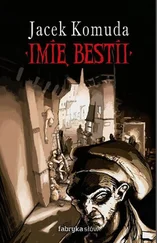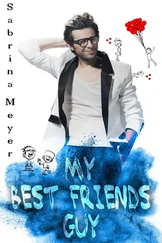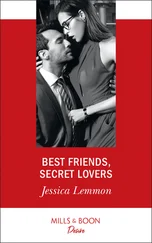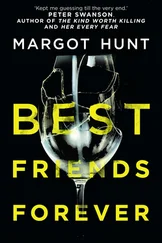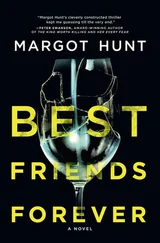From the toilet seat, Marina examined the fairly clean bathroom. The usual plus a bidet. An old plastic shower curtain frayed at the bottom, a circular swing window by the bathtub. Two gaping holes by the sink indicated where a towel rack had been. Marina wondered what purpose a plastic bucket full of water served. No toilet paper was in sight and she fished for a Kleenex in her handbag.
After zipping her skirt up, Marina closely inspected the ceramic soap dishes coated in white enamel recessed in the walls alongside the bathtub, by the sink – where a sliver of soap survived – and next to the bidet. Then she turned to the toilet-paper holder. The four pieces were level with the light-blue glazed tiles on the wall. In all probability they had been there since the tiles were installed.
Marina flushed the toilet. Aside from a little gurgling, nothing happened. So that was what the bucket was there for. She poured half its contents into the toilet bowl, closed the lid, looked around. She filled a glass jar by the sink with water and washed her hands. She was inspecting her face in the medicine-cabinet mirror, shaking the drops off her hands to pull out a fresh Kleenex, when there was a knock on the bathroom door. Marina said ‘Come in,’ and Elena turned the knob and handed her a towel.
‘I’m sorry, I didn’t realize there weren’t any in here.’
‘It’s okay.’
‘We have running water from five to seven p.m. only. It’s when I shower and fill up all the buckets and pans in the house.’
‘And why is that?’ Marina asked as she wiped her hands dry.
‘For two reasons, according to the President of the Council of Neighbours,’ Elena said, watching Marina’s manicured hands with envy. ‘The system of pipes supplying water to the city is in ruins; half of what’s pumped into it is lost underground. So, the cistern never has water for more than three or four hours of normal consumption. Secondly, the electric water pump that fills the tanks on the roof of the building is too old and breaks down frequently, so the neighbour who tends to it turns it on two hours a day only.’
Marina returned the towel to Elena. ‘Such a nuisance. It seems to me that life here is fraught with problems.’ Feeling her way.
‘It is, it is. Inconveniences, nothing tragic, but you may have to wait two hours for a bus, two months for a beef steak, save for two years to buy a decent pair of shoes.’
‘And to live in a place like this?’ Marina asked as she produced a lipstick from her purse and turned to the mirror.
‘Well, maybe two centuries,’ Elena said with a wide grin. ‘Apartment buildings like this are a thing of the past. This one was completed in 1957. It’s ugly, looks like a big box, but back then we had professional construction workers and those guys knew their business, they built to last.’
‘It’s a great apartment,’ Marina said, once she’d pressed her lips together and capped the lipstick. ‘The rent on a place like this in Manhattan? No less than five thousand dollars a month; as much as eight thousand in a nice area.’
‘Really?’
‘Really. This could use some refurbishing, though. You haven’t made any repairs, have you?’
‘Never. But it’s in good shape. No cracks or fractured pipes. Paint is what it needs, badly. But it’s sixteen dollars a gallon.’
‘That’s not too exorbitant.’
‘No, not for you. Probably you make as much in an hour.’
‘A little more,’ Marina admitted.
‘You know what my monthly pay-cheque is? Fifteen dollars.’
‘You’re kidding.’
‘I’m not.’
‘What do you do?’
‘I’m a special needs teacher.’ Elena stole a glance at her watch. ‘I teach disabled children in their homes. Let’s go back to the men before they accuse us of babbling the night away.’
It was dark and crickets were chirping happily in the Parque de la Quinta by the time the two couples got into the rented Nissan. Pablo and Elena sat in the back of the car. At the wheel, Sean followed the directions given by the bald man. They had been heading west along Fifth Avenue for two minutes, the Cubans pointing out the sights, when Marina turned round, wanting to learn more about Elena’s job.
‘Well, there are children so seriously incapacitated they can’t attend the special education schools,’ Elena began.
‘Oh, my God,’ Pablo moaned in English. ‘Not tonight.’
‘Some are disabled from birth, some suffered an accident,’ Elena, ignoring him, went on. ‘They are hooked up to some life-support system that’s difficult to carry around, or are quadriplegic. There’s a team of teachers to teach them at their homes. I’m one of them.’
‘Isn’t your job…a little depressing?’ Marina asked, after interpreting for Sean.
‘Not to Mother Theresa,’ Pablo butted in. ‘Turn right at the next light, Sean.’
‘Okay. But let me hear how your sister makes a living, please?’ Sean said in a dry tone.
Marina shot a quick glance at Sean. Pablo sulked. Elena had trouble suppressing her smile. She didn’t understand the words, but the tone spoke volumes.
‘Contrary to what almost everyone believes, it’s rewarding,’ the teacher went on. ‘These kids are the happiest kids on earth. They act as if nearly everything that happens around them happens for their personal delight. They see you come in, it’s like a fairy godmother came in to wave her magic wand over them. And being in daily contact with them, seeing their parents trying to conceal their suffering, makes you realize how much we healthy people take for granted, how petty most of our problems are.’
‘How many children do you teach?’ Marina asked.
‘Two. A nine-year-old boy in the mornings, an eleven-year-old girl in the afternoons.’
‘All the subjects?’
‘All except for physical education.’
‘Who pays for it?’ Sean wanted to know.
‘The Ministry of Education, of course.’
Sean was staring at the red light, his foot on the brake pedal. ‘She makes fifteen dollars a month,’ Marina told him.
‘What?’
Elena smiled mirthlessly. ‘Low salaries make many things possible. If Cuban teachers and doctors made half the money their colleagues make in Mexico, Jamaica, or any other Latin American country, the government wouldn’t be able to provide the healthcare and education it does.’
‘Green light,’ Pablo said. ‘Take a right on the second corner.’
Marina finished the translation after Sean rounded the corner.
The two-storey mansion surrounded by a cyclone fence appeared to be in perfect condition, no mean feat considering that its backyard fronted on to the sea. In its covered front porch there were four wooden rocking chairs, several flower pots, and an iron-and-glass lamp hanging from the ceiling. From the roof, spotlights flooded a small, well-tended garden. An old man standing by the driveway entrance swung back the gate to a garage and waved them in. After pulling the garage door closed, he silently welcomed the foursome with a series of nods and a smile, then pointed to a small door.
Pablo went in first and found his way to the dining area of a vast space, but he kept strutting – the others in tow – until he reached the lounge section. An overweight, bejewelled and perfumed white woman in her sixties uncoiled herself from a chair and embraced him warmly.
Thick make-up failed to conceal her deep wrinkles and the dark pouches that sagged under her eyes. They touched cheeks and exchanged air-kisses before the short man turned and made the introductions.
‘Meet the best restaurateur in Havana: Señora Roselia. This couple, Roselia, are friends of mine: Sean and Marina. Sean is Canadian, Marina is Argentinian.’
‘It’s a pleasure,’ Roselia said in Spanish, extending her hand. ‘I hope you’ll be satisfied with our service.’
Читать дальше

